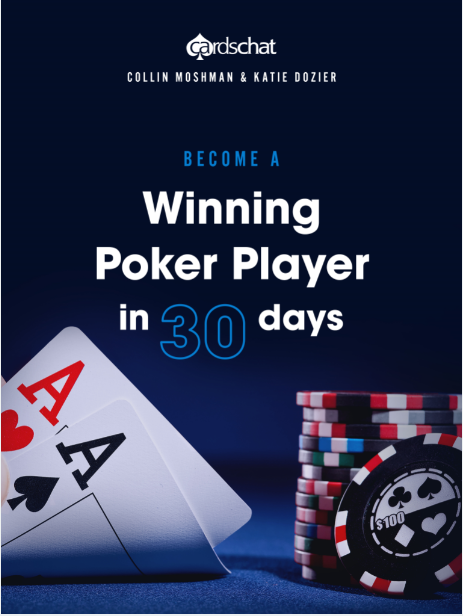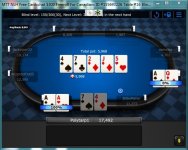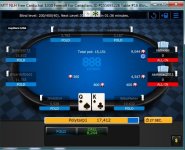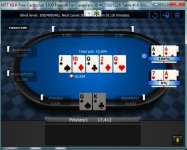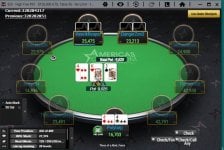Ouch, quite the mid term here.
I have decided to go back to the ring table with my renewed confidence and so far it is going well. Usually, when I get impatient playing MTT's and
freerolls my bankroll disappears in cash games and I have to start all over. It is great that despite the monster beats I have been delt, especially in the CC freerolls, that I have not gone on tilt. I am determined to hold steady and grow my bankroll to a point where I can move away from just $.02 and $.10 S&G's/
Response to video question:
Question 1:
With ATo I would try to isolate the UTG player and bet 3 X BB. I think I would be able to stay out of trouble on most flops and try to take advantage of my position.
Holding 22 I would call since UTG has limped and there are many players to act behind. The hope is to hit a monster flop.
The K9o will be a fold for me, in that spot.
Question 2:
With 8h7h I would check as the board would be way too wet for me and there are 2 villains waiting to pounce.
Question 3:
I would fold. This hand looks like it may get me in trouble and villain has many AK. AQ, and pocket pairs in his range to 3-bet the UTG player.
Question 4:
The effective stack is 4383 and this looks like less that the 20:1 guide that I remember. It is less than 10:1 with the commitment of 630 more chips needed to win about 5000 in chips. I would fold to that type of aggression as villain has many higher pocket pairs in his range and still one villain to act behind!
Question 5:
With 18.3 % equity which represents 869 chip value.
Question 6:
As played there is no chance of winning the hand but just a slight chance that hero was on a draw. So I would decide how much I am willing to bluff with here. May have to part with two thirds of the pot or pot bet to make it believable.
Question 7:
The effective stack is less than 20 BB so I would maximize the chances of stealing the blinds and shove.
Question 8-9
There seems to be 12.1 K and hero has to bet about 7.1 K so under 2:1
odds here. I do not have the guts to call there but think it is an okay coin flip since hero does not need to commit too much of his stack. So cards which give a little over 33 % win rate needed here and Q5o would not give that in my book.
Question 10:
I really would have preferred the shove with that hand. Now that I have seen the turn card it is so much harder to continue with the plan. However, it makes sense to continue with the aggression and shove here.
The only term that comes to mind for the bonus question is variance. Everyone has highs and lows in the game but a professional player plays withing the right buy-in sizes compared to his bankroll to be rewarded over time. This is based on his skill of course.

